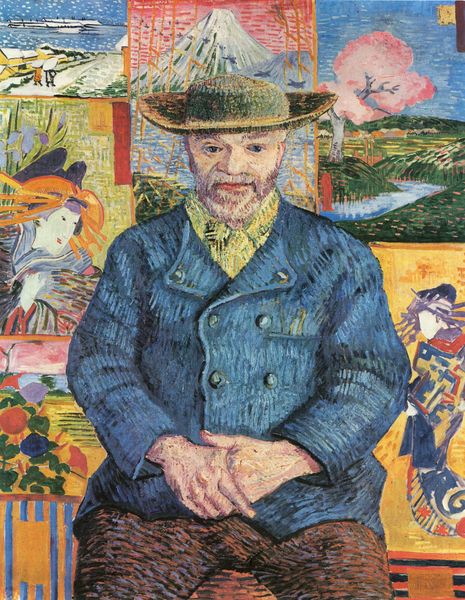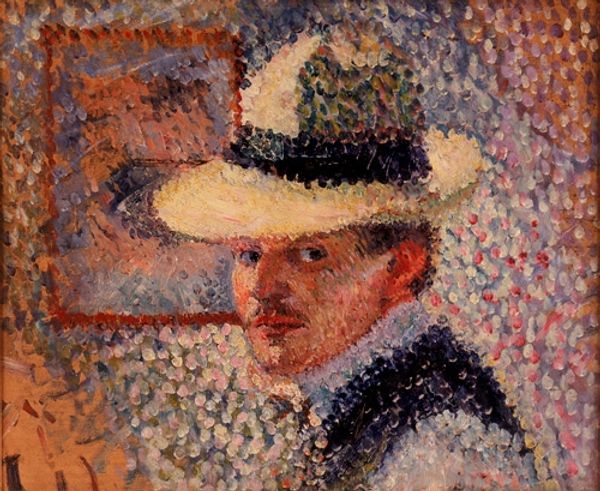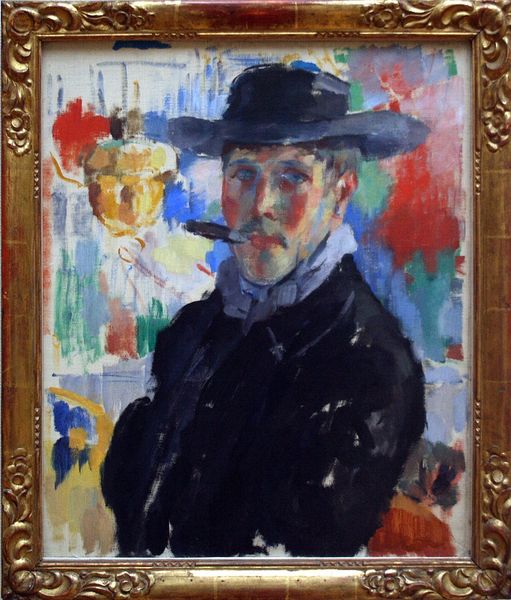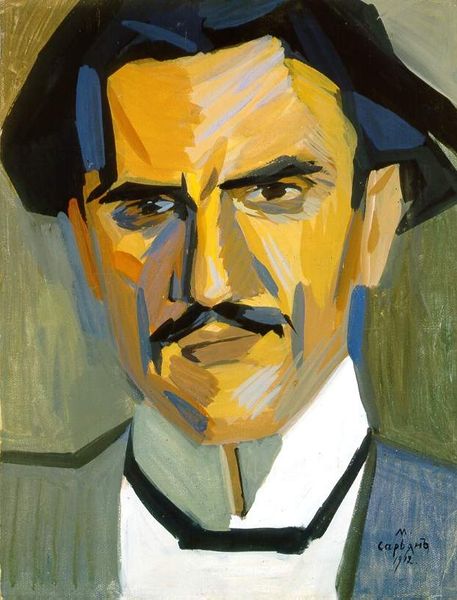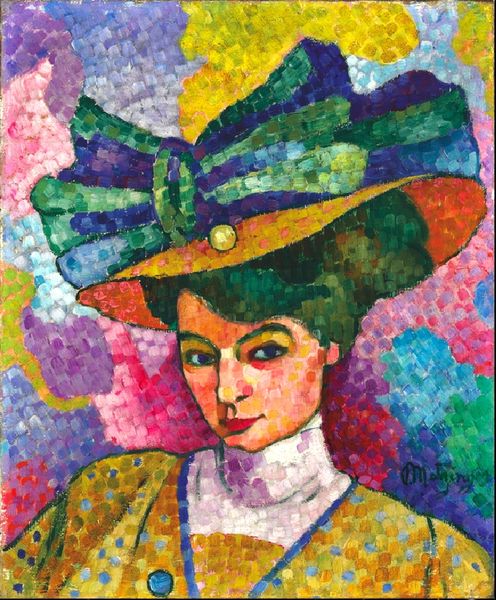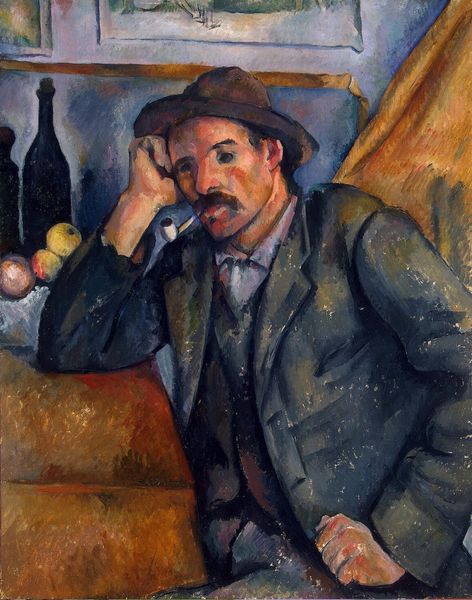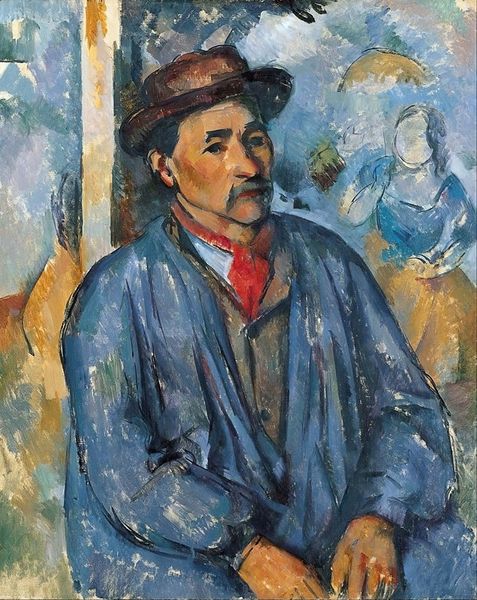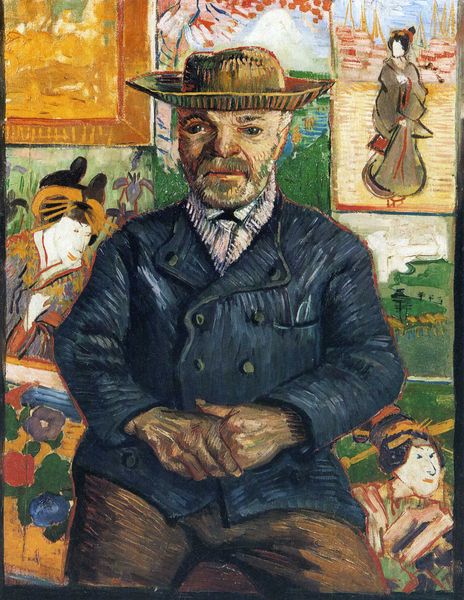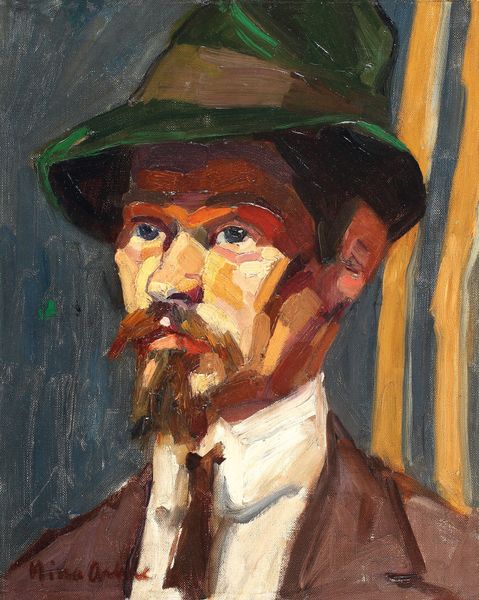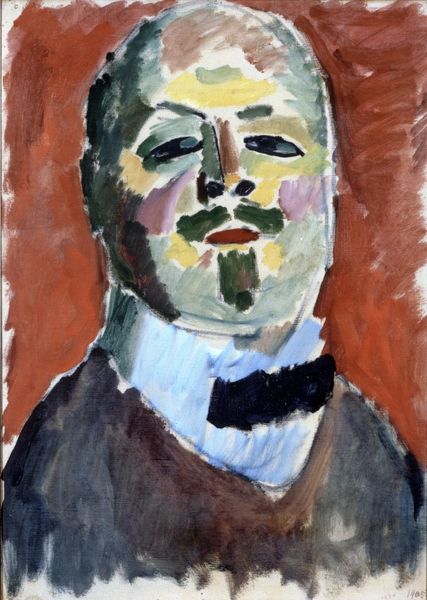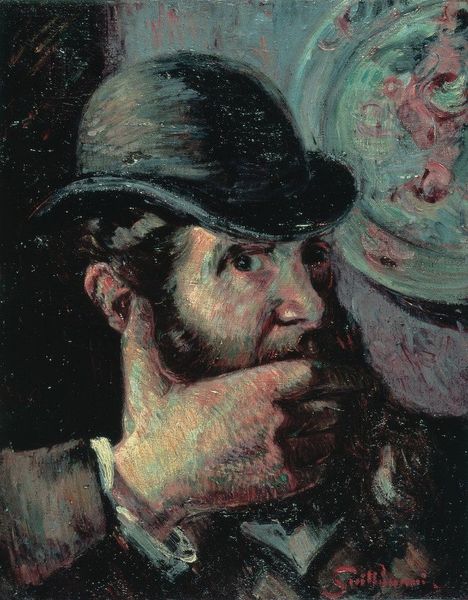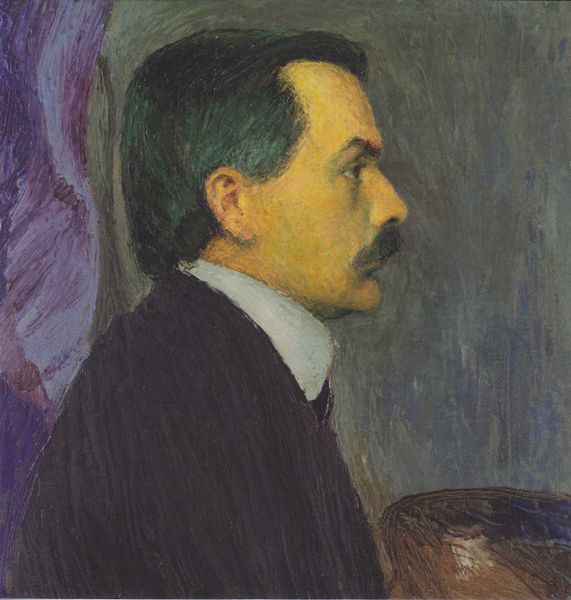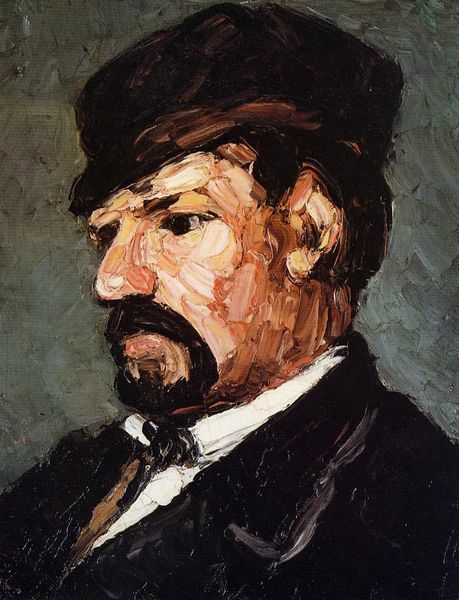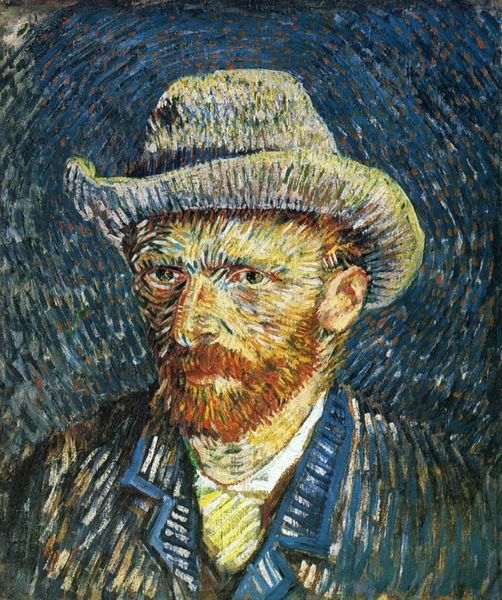
Man with a Tulip (also known as Portrait of Jean Metzinger) 1906
0:00
0:00
robertdelaunay2
Private Collection
oil-paint, impasto
#
portrait
#
fauvism
#
modern-moral-subject
#
oil-paint
#
figuration
#
impasto
#
intimism
#
geometric
#
cityscape
#
post-impressionism
#
portrait art
#
modernism
Dimensions: 72.39 x 48.58 cm
Copyright: Public domain
Editor: This is Robert Delaunay’s “Man with a Tulip”, painted in 1906. It's an oil painting and strikes me as being so intensely colourful, yet somewhat somber at the same time. The mosaic-like brushstrokes and vibrant colours... what do you see in this piece from a historical perspective? Curator: What I see here is Delaunay engaging with the avant-garde currents of his time, while subtly commenting on the bourgeois society that was shaping modern Paris. This portrait, with its seemingly nonchalant figure, captures the spirit of modernism beginning to bloom in the early 20th century. Editor: Could you expand on that? What about the symbolism of the flower itself? Curator: Consider the tulip, often associated with wealth and vanity, placed against the backdrop of an emerging urban landscape. What statement might Delaunay be making about the shifting social values and the role of the artist in this changing world? Are we meant to see this figure, perhaps a fellow artist, as embracing or resisting the commodification of art? Editor: I guess I hadn’t thought of the tulip as a critique. The subject looks a bit detached, which adds to the sense of observation rather than participation. Curator: Exactly. The detached gaze, the carefully arranged composition, even the choice of vibrant colours—all contribute to a complex social commentary that’s rooted in the Fauvist and Post-Impressionist movements. How does understanding this socio-political context affect your initial reaction? Editor: It definitely enriches it. I was initially drawn to the colours, but understanding the potential commentary makes me see the painting as far more deliberate. Curator: Indeed. And in considering Delaunay's "Man with a Tulip," we find an era of social and artistic transformation mirrored in paint, which is what art history tries to do. Editor: Thanks, I appreciate getting the added context about its cultural and social commentary.
Comments
No comments
Be the first to comment and join the conversation on the ultimate creative platform.
